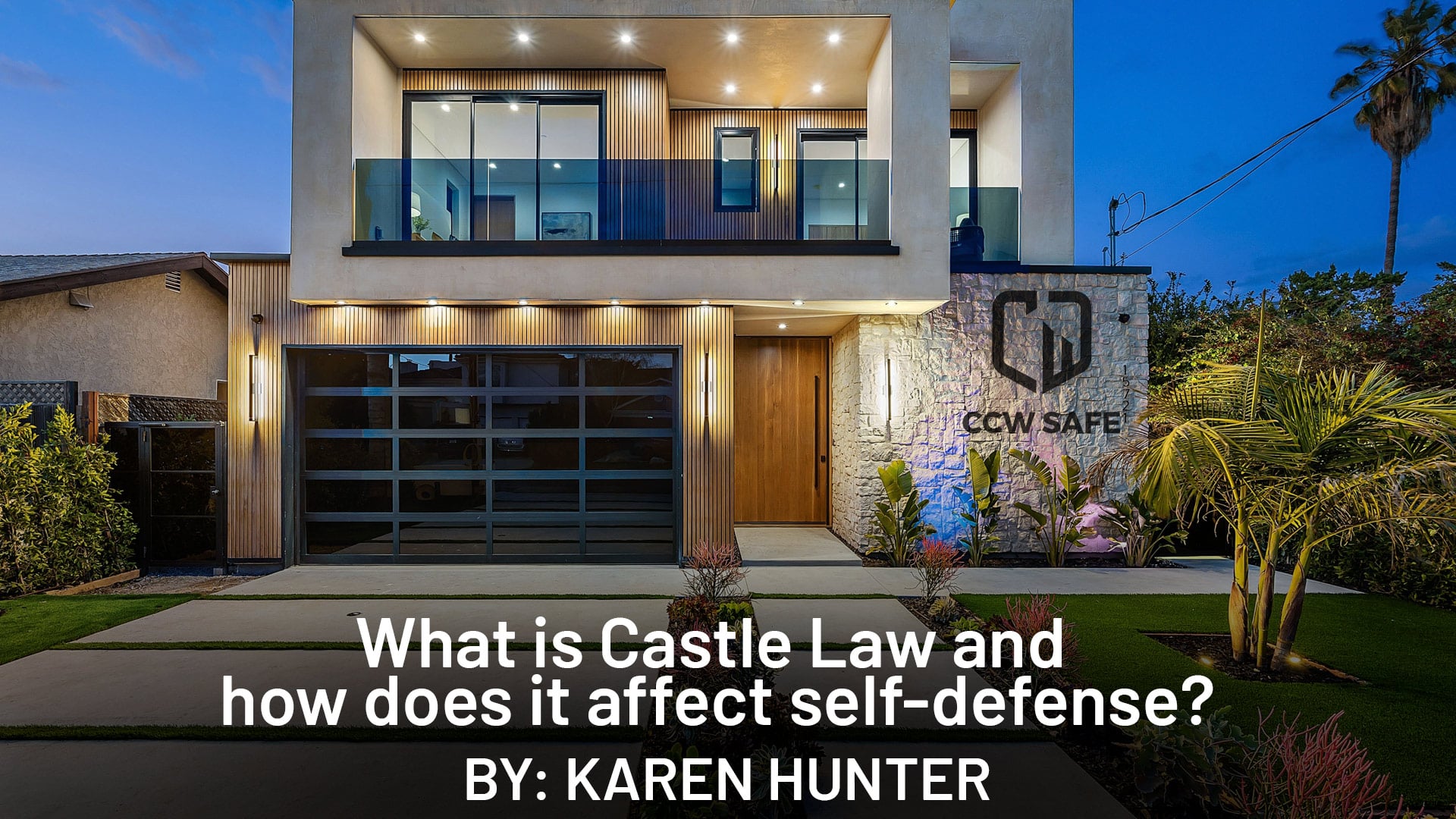
Posted on May 19, 2025
What is Castle Law and how does it affect self-defense?
By: Karen Hunter
“Get off my lawn!” We have all heard this phrase and probably have used it in jest a time or two. While comical, there is an element of truth to this. Our home is our castle and most of us have an innate instinct to protect it with lethal force if needed. We feel safe adhering to this mindset because of castle law.
Castle law is a legal principle that allows individuals to use force, including deadly force, to protect themselves in their homes, vehicles, or other places without the duty to retreat. This doctrine is based on the notion that a person’s home is their “castle,” and they have the right to defend it from threats. Castle Law plays a significant role in self-defense laws across the United States, but its scope and application vary by state.
Castle law is rooted in common law, dating back to English legal traditions where a person’s home was considered their ultimate place of safety. Historically, individuals had no duty to retreat when faced with a threat in their own home. This principle has since been codified into laws across many U.S.states, allowing residents to use force to protect themselves from intruders.
The fundamental principles of Castle Law typically include several key points. First is the right to defend one’s home, vehicle, or legally occupied place. Second is that they have no duty to retreat before using force if an intruder unlawfully enters the home. The third and final position is they are provided protection from criminal prosecution and civil liability when acting in self-defense within legal boundaries.
Castle Law significantly impacts self-defense cases by providing legal justification for the use of force under specific circumstances. In states that follow the Castle Doctrine, homeowners or occupants are not required to attempt escape or retreat before using force against an intruder. This contrasts with standard self-defense laws that may require individuals to seek safe exit before resorting to force, particularly in public settings.
In many jurisdictions, Castle Law allows the use of deadly force if an intruder is unlawfully entering a home and poses a threat to the occupants. However, the level of force must be proportionate to the perceived threat. In some states, deadly force is presumed justifiable if someone unlawfully enters a residence at night. Each state and general jurisdiction can have different laws regarding this.
In addition to shielding individuals from criminal prosecution when acting in accordance with the law, many states provide immunity from civil lawsuits. This means that if an intruder or their family attempts to sue for damages, the homeowner is legally protected from financial liability in most cases. This is a major part of the law because civil suits are rampant in the U.S. Even in obvious cases of self-defense people have been dragged though civil courts because of manipulative individuals.
As I mentioned, there are multiple versions of this law across the country. While people in certain states are afforded excellent protection, other states fall behind. In fact in certain states, you have a duty to retreat out of your house if you are attacked. It is important that you understand the laws in your jurisdiction.
Castle law is an important part of self-defense laws in the United States. They affirm a person’s right to protect themselves and their property from intruders. While the specifics vary by state, the doctrine generally removes the duty to retreat and provides legal protection for homeowners who use force in self-defense. However, it remains a complex and sometimes controversial legal issue. It is important to educate yourself in the law and understand your rights.